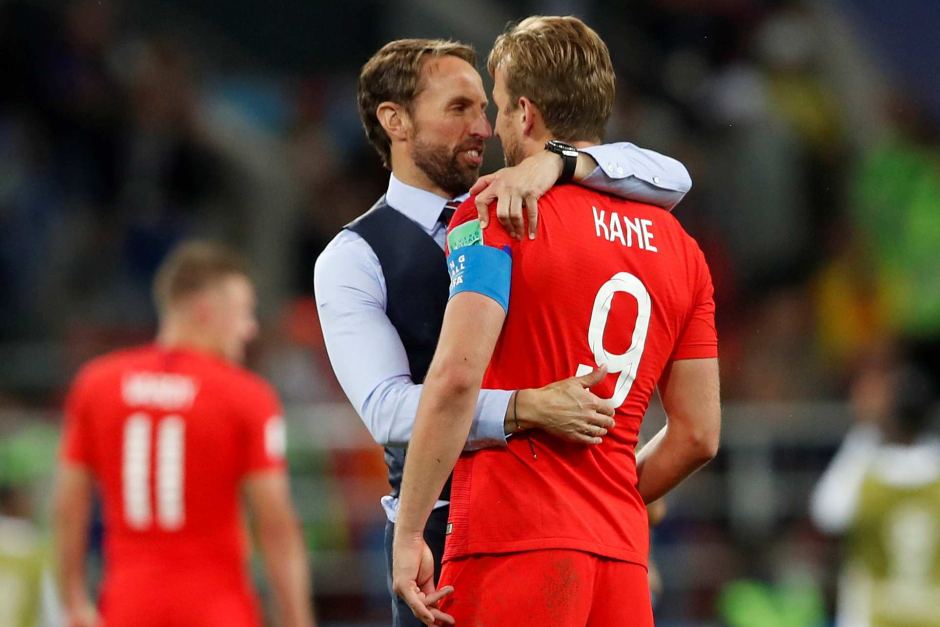The debate over Trent Alexander-Arnold’s role in the England squad has taken center stage in recent discussions among fans and pundits. As one of the Premier League’s standout right-backs, Alexander-Arnold’s transition to a midfield role under Gareth Southgate has been met with skepticism. Critics argue that his underwhelming performances are symptomatic of a broader issue: Southgate’s unimaginative tactics and an over-reliance on players like Harry Kane, who despite his goal tally, is seen by many as not fitting the team’s needs.
Let’s dissect why Alexander-Arnold’s midfield position could actually work wonders for England and how the current management is squandering this potential.
Alexander-Arnold’s midfield potential: A fresh perspective
Harnessing Trent’s creative genius
Trent Alexander-Arnold is renowned for his exceptional passing range and vision, qualities that make him a formidable presence in any position on the pitch. Moving him into midfield seems like a natural evolution to leverage his creative capabilities further. At Liverpool, his ability to dictate play from deep and deliver pinpoint crosses has redefined the modern right-back role. Transferring these skills to a central role should, in theory, provide England with a potent playmaker capable of unlocking defences with ease.
In theory, a midfield role allows Alexander-Arnold more freedom to influence the game from various positions, rather than being confined to the flanks. His ability to see and execute passes that others might miss is exactly what England’s often predictable and stagnant midfield needs. It also gives him less defensive responsibility being brought in more centrally, which, given the criticism he has received regarding his defensive attributes at right-back, should also help improve his game.

The reality of the current situation
Despit the potential we’ve just discussed, things aren’t quite going to plan according to many fans and pundits. Alexander-Arnold just isn’t having the kind of impact that people have expected. However, prior to Euro 2024, Trent had actually put in two man of the match performances in his last five England appearances. Even managing to get himself on the score sheet in the process.
But, since the Euros have kicked off, his impact according to many, has not been up to par. Yes, there have been some sloppy passes, but, while he may not have recorded any goals or assists, both England’s goals in the tournament so far have been chances created by the scouser, passing out to both Saka for the cross against Slovenia, and to Walker for the deflected cross that found Kane in the box against Denmark.
So, why all the hate? Well, it could be because much of the country doesn’t like Liverpool or Liverpool players. They put their blinkers on for poor performances from other key players like Phil Foden and Harry Kane, and focus on what they don’t like. Despite the statistics and impact on the pitch clearly being much more positive than people would lead you to believe. So what is going wrong, and how could it potentially be fixed?
Southgate’s tactical shortcomings
The manager’s misguided approach
Alexander-Arnold’s struggles in midfield are less about his abilities and more about the systemic issues within Gareth Southgate’s tactical approach. Southgate’s rigid and often conservative strategies have been criticised for stifling creativity and not playing to the strengths of his players. Instead of building a dynamic system that could maximise the unique talents of players like Alexander-Arnold, Southgate seems to prefer a more cautious, defensive setup.
The reliance on long balls and safe passes often reverts to Jordan Pickford, resulting in a disjointed build-up play that nullifies the creative potential of midfielders. This conservative style is at odds with the aggressive, high-tempo football that many believe England should be playing, especially with the attacking talent at their disposal.

The Harry Kane dilemma
One of the most contentious issues is Southgate’s unwavering faith in Harry Kane. Despite being England’s all-time top scorer, Kane’s contributions in critical matches have often been questioned. His tendency to drop deep and engage in physical battles often slows down England’s play and makes their attack predictable. This reliance on Kane’s presence up front can be more of a hindrance than a help, particularly against well-organised defences who find it easy to mark him out of the game.
Kane’s record is padded with goals against weaker teams, a statistic that inflates his importance but does not necessarily translate to effectiveness in high-stakes matches. Instead, forwards who are more mobile and adept at making runs behind defences, like Aston Villa’s Ollie Watkins, could better complement Alexander-Arnold’s vision and passing range.

A new tactical blueprint
Freeing up creative talent
To fully exploit Alexander-Arnold’s potential in midfield, England needs to embrace a more flexible and forward-thinking tactical approach. Players like Phil Foden, who are often shackled by being played out of position or underutilised, need the freedom to roam and express their creative instincts. A system that encourages dynamic movement and quick interchanges would allow England’s talented players to thrive.
Integrating Ivan Toney’s physicality and pace
Introducing a player like Brentford’s Ivan Toney into the starting lineup could offer a significant upgrade. Toney’s strength, pace, and ability to win aerial duels make him an ideal target for Alexander-Arnold’s precise deliveries. His physical presence would also provide a focal point for the attack, something that has been lacking with Kane’s deeper-lying role. Toney’s ability to stretch defences and create space would complement England’s creative midfielders and potentially unlock a more potent attacking setup.

Conclusion
Trent Alexander-Arnold’s move to midfield has the potential to be a game-changer for England. Yet, under Gareth Southgate’s current management and tactical rigidity, this potential is being squandered. The over-reliance on players like Harry Kane and the lack of tactical innovation are significant barriers that prevent England from reaching their full potential. Embracing a more dynamic approach and integrating players who complement Alexander-Arnold’s strengths could transform England into a more formidable force on the international stage.
Do you think Trent Alexander-Arnold’s talents are being wasted in midfield under Southgate’s current tactics? How should England restructure their attack to maximise their potential? Share your thoughts in the comments below and be sure to keep up to date on all our footballing content in the Football section.





